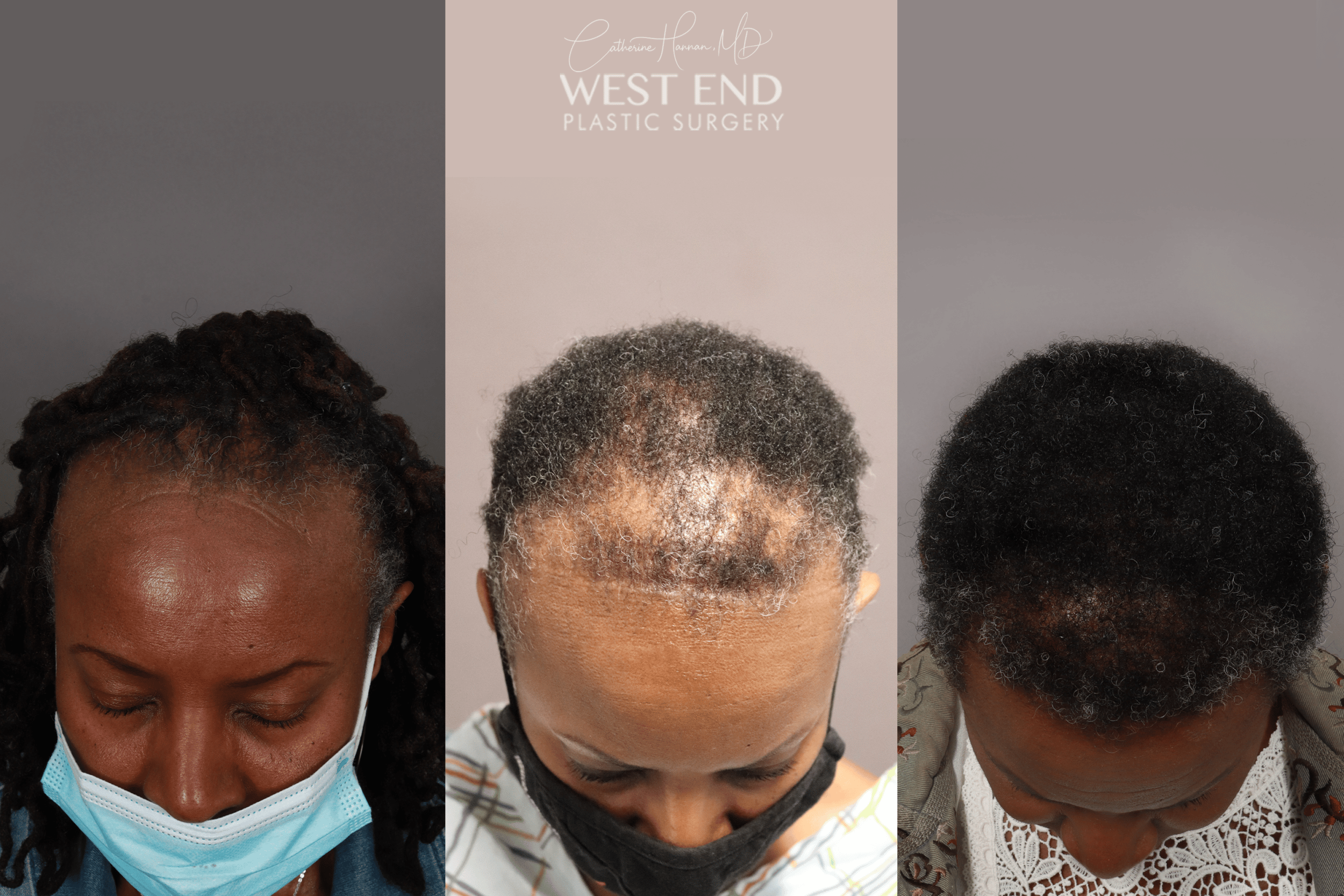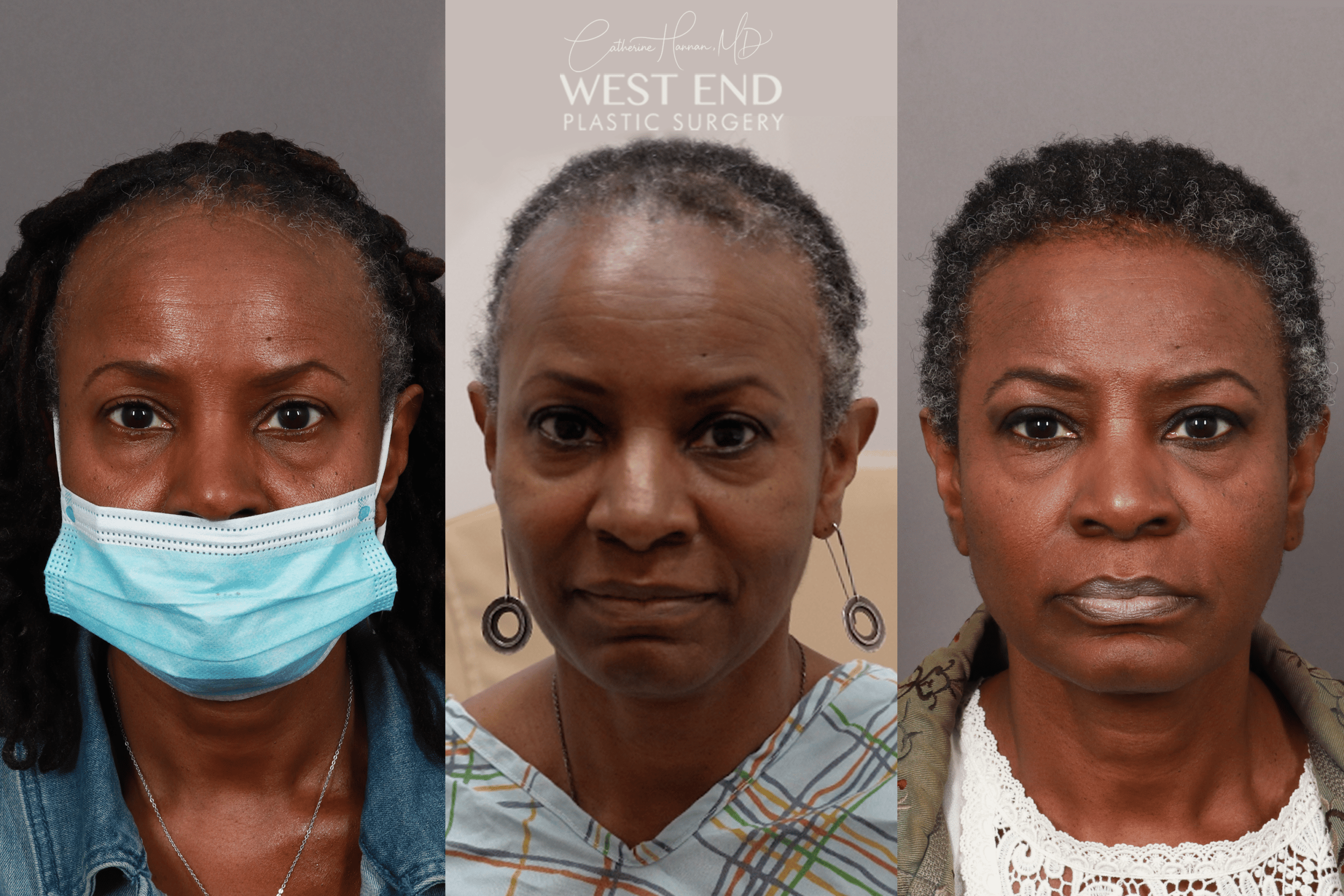Hair loss isn’t a problem that most people think much about. We have our general idea of who loses their hair and why. This assumption that only aging men develop bald spots or a receding hairline is inaccurate. Here at West End Hair Restoration Center in Washington, D.C., we provide care for all sorts of hair loss. To learn more, contact Dr. Lexi Wang at our office at 202-785-4187.
What Is Alopecia?
Alopecia is the term that describes hair loss on the scalp, face, or body. The condition may occur at just about any time in life, even during childhood, and it may last only a short time or may be prolonged.
What are the Different Types of Alopecia?
Male pattern baldness is the most common form of hair loss to occur. That said, there are multiple different types of hair loss to be aware of. These include:
- Alopecia areata, which may occur during childhood, adolescence, or early adulthood. This type of alopecia may involve some patches of hair loss or complete hair loss on the head or the body or both.
- Central centrifugal cicatricial alopecia may develop as a bald spot at the crown of the head.
- Female pattern hair loss may involve thinning at the crown or diffuse hair loss across the scalp.
- Fibrosing alopecia is hair loss that affects the hairline or the eyebrows or both.
- Traction alopecia is also relatively common. This type of hair loss occurs as a result of wearing very tight hairstyles, such as ponytails, braids, or cornrows. (The patient below suffered from traction alopecia due to wearing dreadlocks for many years. She is now 6.5 months post-op from NeoGraft)


What Causes Alopecia?
Hair loss may be influenced by several factors. These include:
- Your family history. This is especially relevant for androgenic alopecia, known as male pattern baldness.
- Medical changes and hormonal fluctuation. Alopecia areata is considered an autoimmune condition in which the body mistakenly attacks hair follicles. Pregnant women and women nearing or past menopause may experience hair loss or thinning as estrogen levels decline.
- Medications and supplements. Certain drugs, including some that are used to treat heart problems, depression, or cancer, carry hair loss as a possible side effect.
- Radiation therapy to an area of the head. Hair may grow back but not as well as it did previously.
- Extreme stress. Hair loss that occurs after an extremely stressful event or period in life is usually only temporary.
- Hair treatments and hairstyles. This, as we mentioned, is referred to as traction alopecia. It occurs due to either a chemical reaction to a substance applied to the hair and scalp or from frequent, extreme tension on the hair.
How is it Diagnosed?
If you’re noticing bald spots of any size, a receding hairline, diffuse thinning, or diminished hair growth and quality on your head or body, you can learn a lot from a board-certified physician who specializes in hair restoration treatment. The process of treating hair loss begins with a thorough consultation and examination of the affected area. Your doctor will ask you questions about your medical history, family history, and current health. Be prepared to discuss any and all medications and supplements you are taking. It is important to be candid with your doctor about these factors, as well as your diet and general ways of caring for your health. In addition to conversing with you about the factors that could be contributing to hair loss, your doctor will examine the area in which alopecia has occurred.
To learn more about your condition, your doctor may perform tests such as:
- A blood test to screen for medical conditions.
- A pull test in which they gently tug on several hairs to determine what stage of the shedding process they are in.
- Light microscopy can be performed to obtain a better view of the hair shaft, where abnormality may contribute to hair loss.
- A scalp biopsy may be performed to examine skin cells or hair roots under a microscope, looking for signs of infection.
What Are the Signs of Traction Alopecia?
Traction alopecia is distinguishable from other types of hair loss because it happens over time due to tight hairstyles and/or headwear that cause repeated strain. Tight hairstyles and headwear can pull strands out of your scalp and, in some cases, damage your hair follicles. The visible signs of traction alopecia usually appear at the source of the strain and can include:
- Hair loss around your forehead, temples, or nape of your neck
- Pimples on your scalp (particularly at the base of braids)
- A widening part
- Thin and broken strands of hair
- An itchy or red scalp
In very advanced cases of traction alopecia, you may notice that patches of your scalp look shiny and have stopped growing hair. These patches are actually areas of scarring.
Fortunately, NeoGraft offers a safe and effective way to treat traction alopecia. Schedule a consultation with our team to learn how NeoGraft can give you a fuller, healthier head of hair.
Who is At Risk for Developing Alopecia?
Certain conditions may make you more susceptible to hair loss at some point. These include:
- Your age
- A family history of hair loss
- Extreme stress
- Significant weight loss
- Poor nutrition
- A medical condition, especially an autoimmune disease
What are Alopecia Treatment Options?
A doctor may consider several different treatments to address alopecia. These may range from medications to surgical hair replacement. With proper care, hair loss might be reversed. At the very least, it may be slowed down. The team at West End Hair Restoration Center, a part of the reputable West End Plastic Surgery practice in Washington, D.C., has considerable education and training in a variety of hair loss treatments. Our handpicked team is committed to exploring new treatments as they become available and thoroughly vetting them for potential use in our office. This enables us to offer you choices that have been proven safe and effective. Our experienced doctors achieve consistently optimal results utilizing the NeoGraft hair restoration system.
Schedule Your Consultation at West End Hair Restoration Center
We are proud to offer a variety of treatments for alopecia, including NeoGraft hair restoration on the head, face, or body! Contact our office at 202-785-4187 to schedule your visit.
